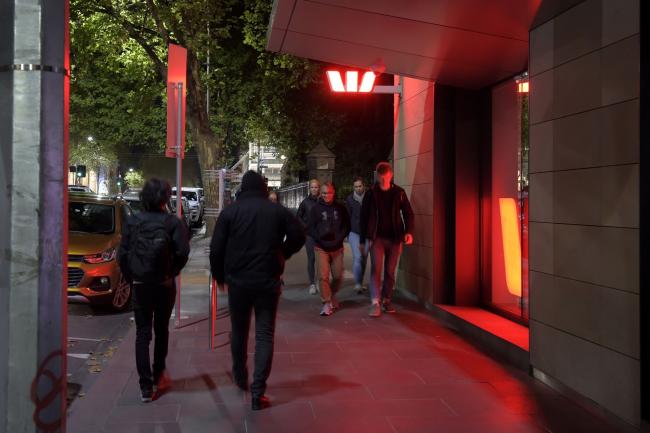(Bloomberg) -- Retail shareholders who bought into Westpac Banking Corp.’s capital raising before the lender was accused of the biggest breach of money-laundering laws in Australian history have been given the option of getting their money back.
Westpac said Thursday that after discussions with the securities regulator, retail investors who had applied for shares before the allegations were aired had until Dec. 6 to change their mind.
The bank earlier this month sold A$2 billion ($1.35 billion) of stock to institutional investors at A$25.32 apiece, and is seeking to raise a further A$500 million from retail shareholders. The shares traded at A$24.66 at 3:28 p.m. in Sydney, and have fallen 7.1% since the laundering scandal broke.
The bank has been rocked by the allegations, which the Australian Transaction Reports and Analysis Centre alleges occurred due to “indifference by senior management and inadequate oversight by the board.” Despite initially trying to tough it out, Chief Executive Officer Brian Hartzer quit on Tuesday and Chairman Lindsay Maxsted said he will step down early next year.
Read more: Why Heads Are Rolling At Another Big Australian Bank
Separately, Westpac said it has appointed consultancy firm Promontory to conduct a review into the bank’s financial crime program. It will report to a newly appointed financial crime board committee, chaired by Peter Nash.
Promontory’s Australian arm is led by Jeff Carmichael, a former head of the Australian Prudential (LON:PRU) Regulation Authority.
Regulatory Probes
In addition to the Austrac investigation, at least three other regulators are now looking into the case: the Australian securities and prudential regulators and the New Zealand central bank. Class action lawyers are also circling to see whether the bank’s disclosures ahead of the capital raising revealed sufficient detail about its interactions with the financial crimes agency.
Westpac has warned investors ahead of the share sale that it was being investigated by Austrac over a failure to report a large number of transactions. It said some of the funds raised could be used for potential litigation or regulatory action.
However, there have been questions about whether those disclosures adequately captured the scope the allegations it’s facing. The Australian Financial Review reported Thursday that the Australian Securities and Investments Commission would look into whether Westpac met its continuous disclosure obligations ahead of the capital raising.
A spokesman for ASIC said that while the agency has commenced an investigation into Westpac it hasn’t specified any particular law or focus of that investigation.
The share offer to retail investors closes Dec. 2. The retail offer price will be the lesser of the A$25.32 institutional sale price, or a 2% discount to the volume-weighted average price in the five days up to Dec. 2.
(Adds review of financial crime program in fifth paragraph.)
